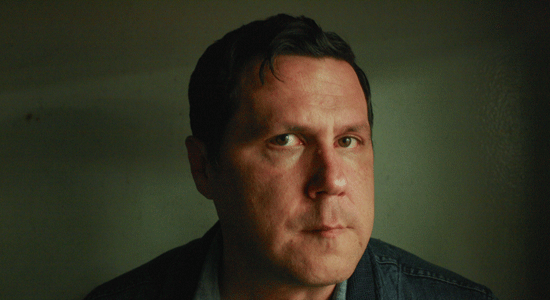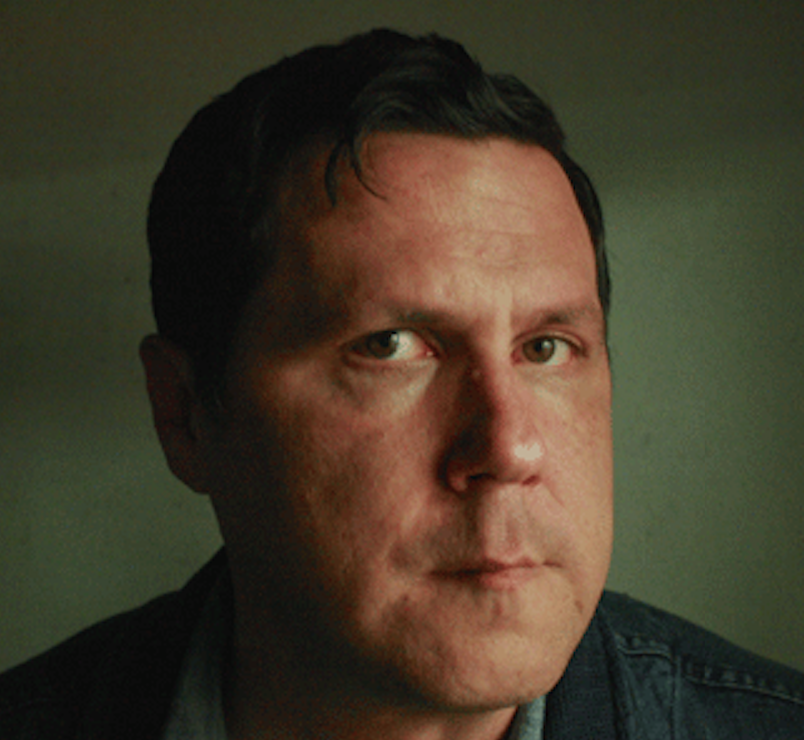
With Visions Of Us On The Land, Damien Jurado completes the Maraqopa trilogy
It began with a dream. Damien Jurado had a dream about a musician on a journey of personal and spiritual discovery, and that dream catalyzed the songs that would become 2012’s Maraqopa. And then he realized he had more of the dream left to tell, and those songs became 2014’s Brothers And Sisters Of The Eternal Son. And now comes Visions Of Us On The Land, the third installment and a conscious post-script to the original dream.
“It’s really weird, man, how much these albums took over my life; they totally changed me,” he says. The songs on the three albums are full of questions that the Seattle-based Jurado has asked, and continues to ask, about himself.
“The first two are really connected in the fact that they follow this story of this musician who sort of disappears from life and just goes out to seek and find himself,” says Jurado. “And while he’s trying to find himself, he sees the deep need for God and love, and wonders, ‘What does all that mean, and if love overtakes me, what will I become? Am I willing to let go of me for this thing called love? What if it transforms me? What is this thing called God? What if it takes over my life? What am I risking here?’ There’s all sorts of levels. The third record is really about him and his life companion going and seeking out whatever that is on what is pretty much Earth, but it’s barren and no longer inhabited by anyone. It’s pretty much an Adam and Eve scenario, I guess. This new album is sort of about experiencing a journey of the mind. What is all that you are?”
The narrative is embedded in the songs, but not so literally that it dominates the albums. Visions, Jurado’s 12th album, contains soul-searching, questioning songs such as the spooky, groove-oriented “Walrus” and open-hearted love songs such as the simply beautiful “A.M.A.M.” (named for the AM radio station that Jurado listens to when driving his kids to school).
Jurado has always written character-driven songs, sometimes personal, often overtly fictional, so the Maraqopa albums aren’t radically di fferent from his previous work. His LPs have been peopled with drifters, murderers and couples on the run, but they also focus on themes of redemption and salvation that arise from Jurado’s Christian faith. He’s ranged from acoustic, singer/songwriter fare to churning indie rock, but it wasn’t until his first collaboration with producer Richard Swift on 2010’s Saint Bartlett that he feels he began to find his own voice. “I think I’m definitely more secure musically than I was before,” he says.
Jurado credits Swift, who plays with the Shins and the Black Keys and whose own albums lean toward baroque pop, with freeing him to embrace a wider range of influences and to experiment more. On his previous albums, stretching back to 1997’s Water Avenue S, Jurado feels he was too easily influenced by what others wanted him to be.
“Me trying to fit in—it didn’t work,” he says. “My records didn’t sell, you know. They were terrible versions of me trying to be like everybody else. They were terrible versions of Jeff Tweedy and Pavement and Springsteen. I’m not discounting them or how much time I put into them and how heartfelt they were. Some of those songs are the best songs I’ve ever written, from a songwriter’s standpoint. But from an artistic level, as far as expressing them—I don’t know, it wasn’t me. I think I was born with a bit of a freak flag, but I never embraced it.”
Swift and Jurado bonded over their love of Captain Beefheart and Howlin’ Wolf records, and Swift encouraged him to escape any pigeonholes that had constrained him before. Much of Visions is densely layered with ghostly orchestration, driving acoustic guitars and echoing vocals, although it has moments of solitary introspection and cathartic rock.
“Swift said to me, ‘It’s weird, man, you like crazy music like your parents’ or grandparents’ records, like the Ray Conni Singers or Sergio Mendes, but you’re kind of lumped in with people like Wilco and indie-rock bands. You’re not that at all,’” says Jurado. “I’m like, ‘God, no. I despise those records; I don’t even own those records.’”
While the backstory of Maraqopa and Brothers And Sisters adds layers to Visions, fact is, you don’t need them to appreciate the new album’s earnest and philosophical songs. The narrative isn’t linear, and the songs can exist independently.
“I guess it’s all abstract,” says Jurado. “The reality is, I could give a lecture about what these three albums mean and the whole story behind it. We could talk about the psychological and spiritual aspects behind it. But it doesn’t matter, because people are going to hear it different ways than I ever will.”
Although Jurado didn’t plan for a third chapter in the Maraqopa story, he doesn’t expect a fourth. He sounds relieved when he says, “This is it for me. I’m done with the whole saga.”
—Steve Klinge







